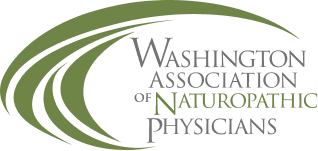Discover Naturopathy
Q: What is naturopathic medicine?
A: Naturopathic medicine is a distinct system of primary health care that emphasizes prevention and the self-healing process through the use of natural therapies. Steeped in traditional healing methods, principles, and practices, naturopathic medicine focuses on holistic, proactive prevention and comprehensive diagnosis and treatment. Naturopathic diagnosis seeks to identify the underlying causes of disease and naturopathic therapies are supported by research drawn from peer-reviewed journals from many disciplines. The therapeutic modalities used in naturopathic medicine (including physical manipulation, clinical nutrition, botanical medicine, hydrotherapy, pharmacology, and more) integrate conventional, scientific, and empirical methodology with the ancient laws of nature.
Q: What is a naturopathic doctor/physician?
A: Naturopathic doctors (NDs) are primary care physicians who blend centuries-old knowledge with current research on health and human systems. By emphasizing protocols that minimize the risk of harm, naturopathic physicians help facilitate the body’s inherent ability to restore and maintain optimal health. It is the naturopathic physician’s role to work in partnership with a patient to identify and remove barriers to good health by striving to create a healing environment – both internal and external.
In Washington State, naturopathic physicians are fully licensed by the Department of Health as primary care physicians (PCPs), are covered by most insurance carriers (including Medicaid and Tribal Health programs), and currently have prescriptive authority for all legend (non-controlled) drugs and for controlled substances limited to codeine and testosterone products. Naturopathic physicians have been regulated in Washington since 1919.
Q: What kind of training does a naturopathic physician have?
A: In states (including Washington) that license or otherwise regulate naturopathic medicine, a naturopathic physician (ND) must successfully complete a four-year, residential, graduate-level naturopathic medical program at an accredited naturopathic medical school. This academic program includes rigorous training in all of the same basic and clinical sciences that are taught in a conventional medical program, but it also includes training in holistic and nontoxic approaches to therapy with a strong emphasis on disease prevention and optimizing wellness. Some examples of coursework above and beyond the standard conventional medical curriculum that naturopathic physicians complete include: clinical nutrition, herbal/botanical medicine, nutrient therapy, counseling, hydrotherapy, physiotherapy, exercise science, physical medicine, and homeopathy.
In order to become licensed to practice medicine in Washington State, a naturopathic physician must also complete two sets of professional board exams. It is only after successful completion of both sets of professional board exams that a naturopathic physician can be licensed by a state or jurisdiction as a primary care physician. Once licensed, naturopathic physicians must fulfill annual, state-mandated continuing education requirements.
Q: Do naturopathic physicians complete a residency or internship as part of their training?
A: Residencies are a required part of a conventional medical school program, but not yet for a naturopathic medical school program. Conventional residencies are subsidized by the federal government through Medicare, so there are generally enough residencies and enough funds to accommodate graduates of conventional medical programs. Naturopathic physicians are presently excluded from the federally-run Medicare program such that naturopathic residences are not subsidized by the federal government. Therefore, there are relatively few private naturopathic clinics that can afford to support a resident out of its own budget. Because there are only a small number of residencies available to naturopathic medical school graduates, they are not currently a required piece of a naturopathic physician’s training. However, naturopathic medical students enter the clinic for observation beginning in the first quarter of the first year of training, and they spend the majority of their final two years in a clinical, out-patient, family-practice setting performing hands-on patient care. In other words, many aspects of a traditional residency program are already built into the naturopathic medical training program.
Efforts are currently underway to create more residency opportunities for naturopathic medical school graduates, and many leaders in the naturopathic profession are striving to move the profession towards a residency requirement.
